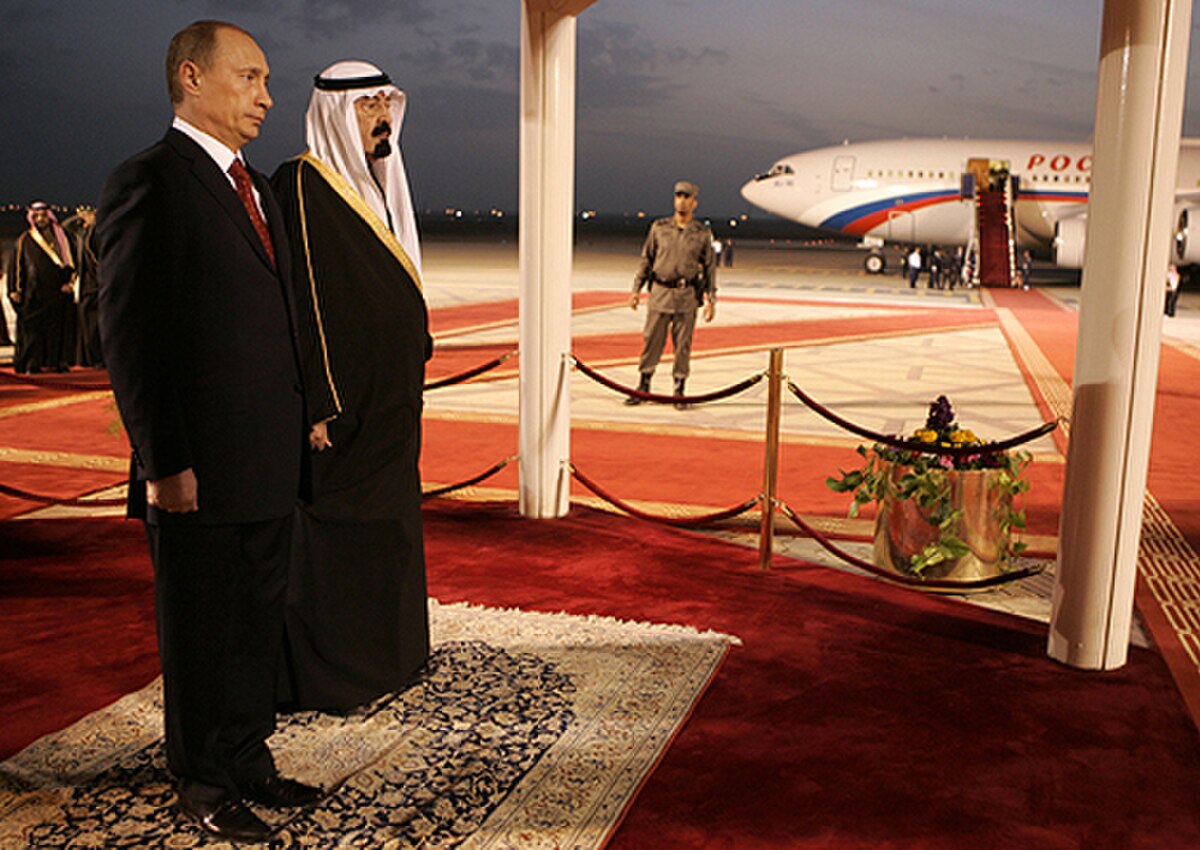
Abdullah of Saudi Arabia
Saudi ArabiaKing Fahd's half-brother, Abdullah, became King of Saudi Arabia in 2005, continuing a policy of moderate reform amidst growing demands for change.[55] Under Abdullah's reign, Saudi Arabia's economy, heavily reliant on oil, faced challenges. Abdullah promoted limited deregulation, privatization, and foreign investment. In 2005, after 12 years of negotiation, Saudi Arabia joined the World Trade Organization.[56] However, the country faced international scrutiny over the £43bn Al-Yamamah arms deal with Britain, leading to a controversial halting of a British fraud investigation in 2006.[57] In 2007, Saudi Arabia purchased 72 Eurofighter Typhoon jets from Britain, amidst legal controversies in the UK over the cessation of the corruption inquiry.[58]
In international relations, King Abdullah engaged with U.S. President Barack Obama in 2009, and in 2010, the U.S. confirmed a $60 billion arms deal with Saudi Arabia.[60] WikiLeaks' revelations in 2010 about Saudi funding for terrorist groups strained U.S.-Saudi relations, but arms deals continued.[60] Domestically, mass arrests were a key security strategy against terrorism, with hundreds of suspects detained between 2007 and 2012.[61]
As the Arab Spring unfolded in 2011, Abdullah announced a $10.7 billion welfare spending increase but did not introduce political reforms.[62] Saudi Arabia banned public protests in 2011 and took a hard stance against unrest in Bahrain.[63] The country faced criticism for human rights issues, including the Qatif rape case and the treatment of Shia protesters.[64]
Women's rights also advanced, with symbolic protests against the ban on female drivers in 2011 and 2013, leading to reforms including women's voting rights and representation in the Shura Council.[65] The Saudi anti male-guardianship campaign, spearheaded by activists like Wajeha al-Huwaider, gained momentum during Abdullah's reign.[66]
In foreign policy, Saudi Arabia supported the Egyptian military against Islamists in 2013 and opposed Iran's nuclear program.[67] President Obama's visit in 2014 aimed to strengthen U.S.-Saudi relations, particularly concerning Syria and Iran.[67] The same year, Saudi Arabia faced a severe outbreak of Middle Eastern Respiratory Syndrome (MERS), leading to a change in the health minister.
In 2014, 62 military personnel were arrested for alleged terrorist links, highlighting ongoing security concerns.[68] King Abdullah's reign ended with his death on 22 January 2015, succeeded by his brother Salman.
